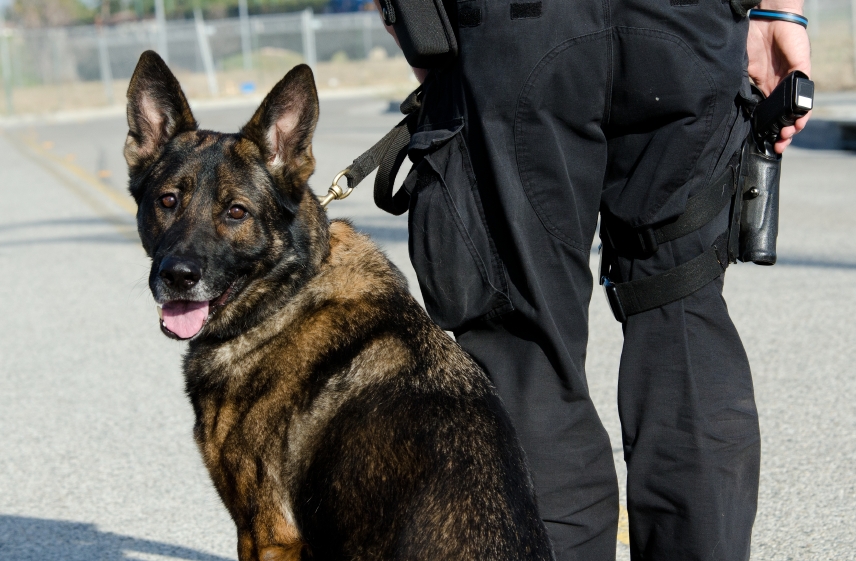Crucial Pet Educating Strategies for a Life Time of Etiquette
Effective pet dog training is foundational to cultivating a well-behaved friend that improves our lives. Comprehending canine actions and utilizing socialization strategies can stop potential problems prior to they develop.
Comprehending Canine Habits

Moreover, recognizing the natural reactions and drives of a pet-- such as target drive, social communications, and territorial behaviors-- makes it possible for trainers to expect and manage certain behaviors. A pet with a solid victim drive may require different strategies than one that is more socially inclined.
In addition, very early socializing and exposure to various settings considerably influence a dog's actions and personality. Positive experiences during critical developing durations can result in well-adjusted adult pets, whereas unfavorable experiences may cause anxiousness or aggression.
Positive Reinforcement Techniques
Among the numerous canine training techniques, favorable reinforcement methods attract attention for their performance and capability to reinforce the bond in between dog and instructor (Ohana K9 Academy). This technique emphasizes rewarding wanted behaviors instead than punishing undesirable ones, promoting a more participating and trusting partnership
Positive reinforcement can take lots of kinds, including treats, praise, toys, or playtime. The trick is to give immediate benefits when the pet dog displays the wanted actions, allowing them to make the connection between the action and the positive result. If a dog sits on command, giving a treat right away reinforces that behavior, making it much more likely to be repeated.
Consistency is essential in positive reinforcement training. Trainers ought to use the same cues and incentives to avoid puzzling the pet dog. Additionally, varying the rewards can preserve the dog's interest and inspiration, transitioning from constant deals with to periodic appreciation or play as the canine masters the behavior.

Basic Command Training
Structure on the structure established via favorable reinforcement approaches, fundamental command training works as a crucial action in creating a hospitable dog. This training commonly includes important commands such as "rest," "stay," "come," and "down - Ohana find out K9 Academy." Each command plays a vital function in fostering reliable communication in between the canine and its proprietor, improving the total bond
To start basic command training, select a quiet atmosphere free from disturbances. Begin with brief, focused sessions lasting no greater than 5 to 10 mins to preserve your dog's interest. Make use of high-value treats as incentives, guaranteeing the pet associates proper behavior with favorable outcomes. When educating a command, use a clear, constant spoken cue gone along with by hand signals to enhance understanding.
Persistence is crucial; canines may call for countless repetitions to understand commands completely. Progressively raise the complexity by introducing variations or disturbances once your canine dependably reacts. Normal technique reinforces learned commands, solidifying them in your canine's habits collection. Eventually, standard command training not just cultivates obedience yet additionally boosts safety and facilitates pleasurable interactions during walks and playtime, laying the groundwork for more advanced training techniques in the future.
Socialization Techniques
In the realm of pet training, socializing methods are vital for cultivating a well-adjusted and confident Bonuses canine friend. Efficient socialization involves revealing your pet dog to a variety of see here now environments, individuals, and other pets in a regulated and positive fashion. The key goal is to help your pet establish a comfort degree with diverse experiences, which can significantly lower concern and anxiety in strange circumstances.
Begin socialization throughout the crucial developing window of 3 to 14 weeks, when puppies are most responsive to new experiences. Present your canine to various setups, such as parks, urban locations, and homes with other family pets. Guarantee these experiences declare by utilizing deals with and praise to enhance etiquette.
Team training classes are an excellent means to expose your pet to other pets and people in an organized atmosphere. This permits supervised communications, helping your pet dog find out suitable social signs. Regular getaways and playdates with genteel pet dogs can further improve social abilities.
Dealing With Behavioral Concerns
Addressing behavioral concerns in dogs is a vital facet of training that requires a methodical strategy and understanding of canine behavior. Common problems such as barking, eating, aggressiveness, and anxiety can stem from different aspects, consisting of absence of socialization, inadequate workout, or also clinical concerns.

Additionally, developing a structured routine that includes normal workout and mental stimulation can substantially alleviate behavioral issues. Interactive playthings can keep a pet involved and reduce devastating tendencies. In cases of serious aggression or anxiety, seeking advice from with an expert canine trainer or a vet behaviorist might be necessary.
Verdict
To conclude, reliable canine training strategies, including favorable reinforcement, standard command training, and socialization, are crucial for fostering etiquette throughout a dog's life. Dealing with behavior issues with an organized approach not only boosts obedience but likewise reinforces the bond between pet dogs and their proprietors. By carrying out these strategies regularly, pet dogs can turn into well-adjusted companions, with the ability of browsing different environments and interactions with confidence and convenience. Therefore, establishing a foundation for an unified partnership is crucial.